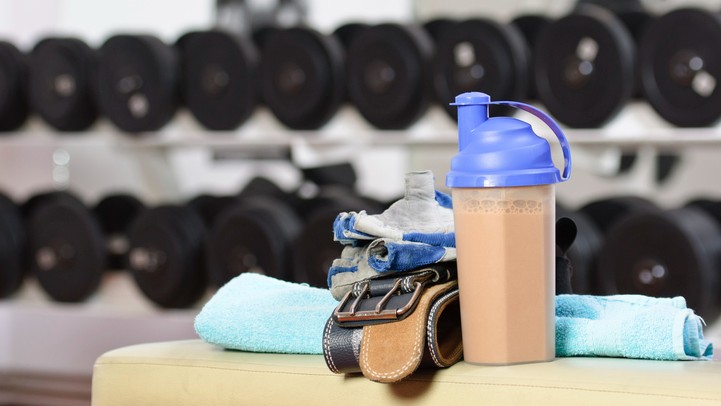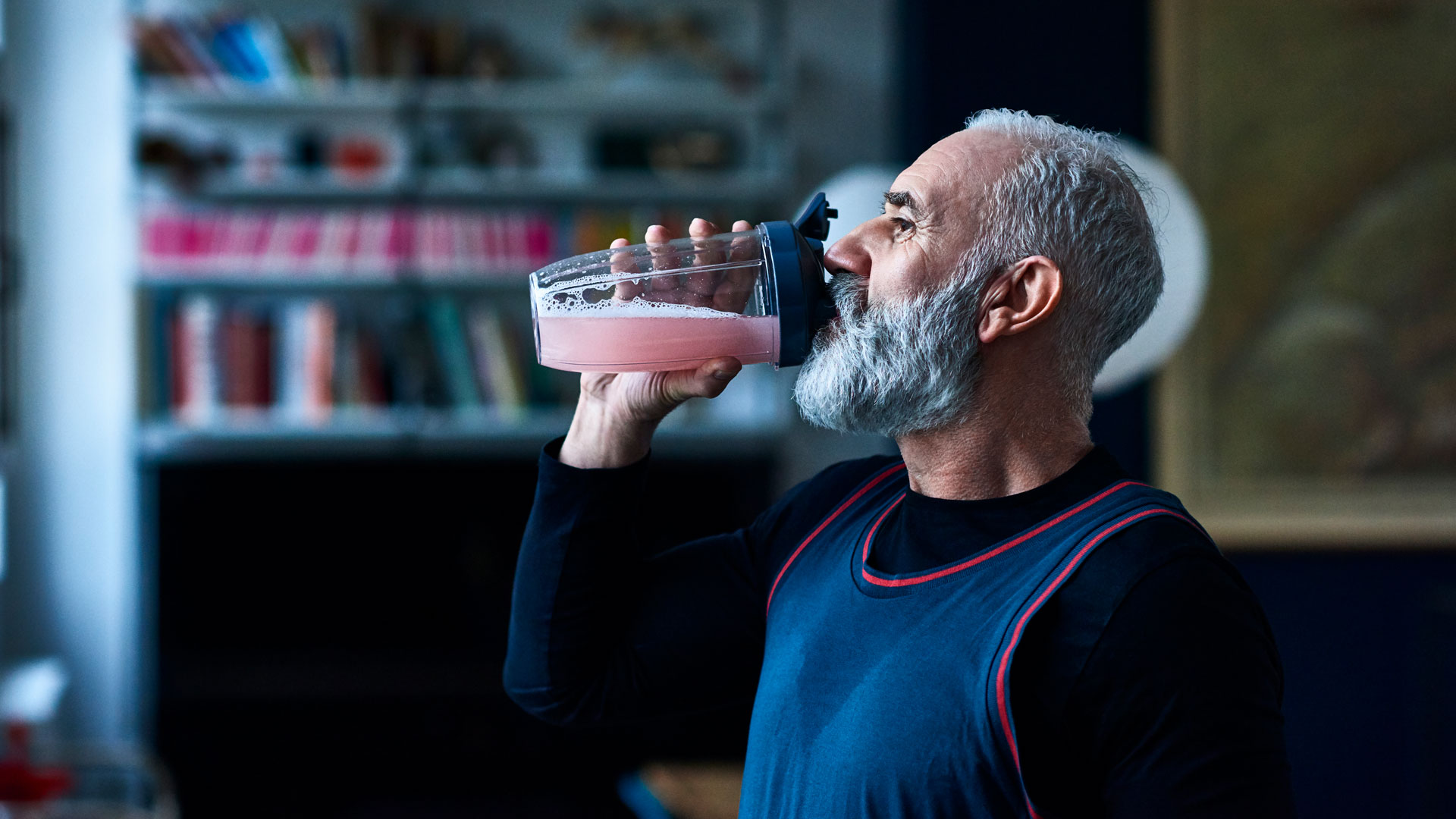How to use creatine for muscle growth and improve your fitness
Learn how to use creatine to help boost your workout performance and results, according to an expert nutritionist


Start your week with achievable workout ideas, health tips and wellbeing advice in your inbox.
You are now subscribed
Your newsletter sign-up was successful
How to use creatine is a highly searched query as many people want to find out exactly what it does to the body, whether or not it can benefit workout performance and how best to consume it.
Creatine is a compound that isn’t essential if you want to achieve your fitness goals but it can offer a helpful boost to your exercise performance during workouts and sports. It has been proven to help increase muscle growth so it’s worthwhile finding out more about creatine if you regularly resistance train with the likes of the best adjustable dumbbells.
The compound can assist with post-workout muscle recovery and help to prevent injury according to a study published in the Journal of the International Society of Sports Nutrition. Fitting in adequate recovery between training is essential for anyone wishing to reach their goals safely and efficiently. Just like you would use one of the best foam rollers to relieve any tightness in your muscles after a workout, supplementing creatine into your diet can also be of use.
Creatine is a safe supplement for anyone to take, including young and old. A review published in the Amino Acids journal has even found that creatine could help the elderly fend off fatigue and improve daily life. It’s all very well knowing that it’s safe to take but you’re probably here to find out how and when to take creatine as part of your fitness regime so we spoke to nutritionist Simon Jurkiw at sports and active nutrition brand Bulk to reveal all on how to use creatine efficiently.
What is creatine?
There are several benefits of creatine, which has led to it being popular among many gym-goers and athletes, including bodybuilders, footballers, rugby players and powerlifters.
Creatine monohydrate is a non-essential compound found naturally in the muscle.
Jurkiw says that creatine comprises three amino acids: arginine, glycine, and methionine.
Start your week with achievable workout ideas, health tips and wellbeing advice in your inbox.
“It can be obtained through your diet or synthesised in the liver, pancreas and kidneys, but not to the levels required to enhance creatine stores in the muscle,” he says.
Through the diet, creatine is found primarily in red meat and seafood, however to get an extra creatine boost, a creatine powder or pill supplement can help.
“As the most researched sports supplement on the market, creatine has been shown to increase physical performance in successive bursts of short-term, high-intensity exercise,” says Jurkiw.
He explains that it’s not just useful for athletes but also a helpful supplement for "everyday fitness enthusiasts looking for that boost during exercise". Creatine is also a safe supplement and isn’t banned in any sports.

What is creatine loading and how does it work?
Creatine loading involves consuming higher amounts of creatine in a bid to speed up the absorption of it into your muscles. This helps to kickstart its physical benefits. Jurkiw says that around 20g is a good amount of creatine to go for.
“This increased consumption of creatine is typically done for a week when starting on the supplement, as it takes between 5 to 7 days for muscles to saturate, helping you achieve quicker results,” he says.
He adds that in order to maintain your creatine levels after this period, a ‘normal’ daily dose of around 3g is recommended.
There have been studies done on creatine loading and its effects on exercise. Research in the Journal of Strength and Conditioning Research has illustrated that the combination of five-day creatine loading and resistance training improved anaerobic power and back squat strength.
However, if shedding unwanted pounds is your goal, you might want to opt for the best protein powder for weight loss instead. This is because creatine for weight loss is not recommended, as it can actually cause you to hold onto excess water weight.
When should you take creatine?
Jurkiw explains that creatine can be taken morning, noon or night.
“The supplement works great any time of day, whatever your workout regime,” he says.
Research underlines this, as various studies have found there to be no difference in outcomes when creatine is taken before or after exercise. A study in the Journal of the International Society of Sports Nutrition did find that men lost more fat mass when taking creatine after exercise over a four-week period. However, there is still little research in this area.
Jurkiw says that there is debate about whether creatine is best taken pre- or post-workout. However, in his opinion “there’s no right or wrong answer”.
“Creatine works well taken 30 minutes before a workout because of its performance enhancing capabilities; equally the supplement is a good addition to any post-workout shake or meal because of its ability to aid recovery and promote muscle growth,” he says.
On rest days, you don’t need to stop taking creatine. In fact, making creatine supplementation a daily habit can help you to reap the many benefits that it provides.
If you would like to read more on this compound, you can find out about creatine vs whey and when it is best to take each. Or perhaps you want to know should you do cardio before or after weights to get the best results from your training.
Lucy is a freelance journalist specializing in health, fitness and lifestyle. She was previously the Health and Fitness Editor across various women's magazines, including Woman&Home, Woman and Woman’s Own as well as Editor of Feel Good You. She has also previously written for titles including Now, Look, Cosmopolitan, GQ, Red and The Sun.
She lives and breathes all things fitness; working out every morning with a mix of running, weights, boxing and long walks. Lucy is a Level 3 personal trainer and teaches classes at various London studios. Plus, she's pre- and post-natal trained and helps new mums get back into fitness after the birth of their baby. Lucy claims that good sleep, plenty of food and a healthy gut (seriously, it's an obsession) are the key to maintaining energy and exercising efficiently. Saying this, she's partial to many classes of champagne and tequila on the rocks whilst out with her friends.
